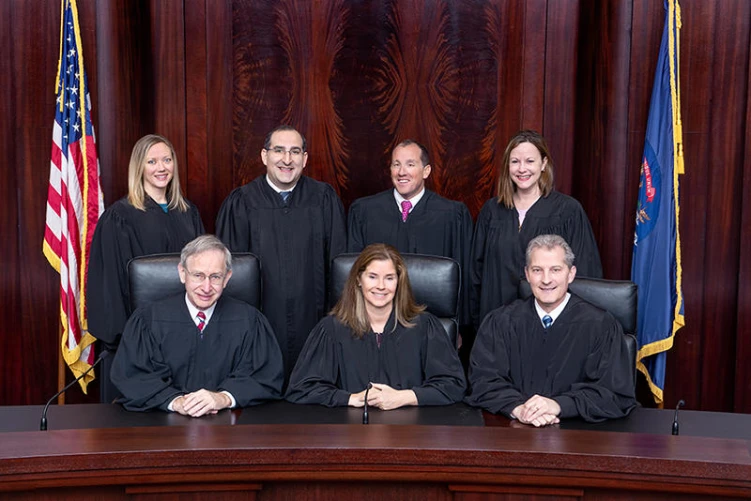There are many reasons to get arrested, and you can be sure that no one wants to have this happen to them. For this reason, it’s important to know about bail bond services so that you know how to leverage them if you need them. That said, there may not be time to learn about them, and this is where it becomes a great idea to learn about the different types of arrests as well as what to do about them from a professional. The moment you get charged or arrested, call a knowledgeable attorney to guide you through the process.

They can talk to you about reasons for getting arrested, helping you figure out what the specific issue that landed you in trouble was. From this point, they can help you come up with a strategy to give you back your freedom. They can also help you understand details of what awaits you, answering questions such as “Can you go to jail at a preliminary hearing?” and more. As a result, you’ll know what you need to do in order to be assured of becoming a free citizen soon. Additionally, you may never forget this information, making it worth it for you and anyone else who may be in need of it.
There has been a significant surge in court proceedings, with a staggering 24% increase observed in 2021 alone. As legal matters become more prevalent, it becomes crucial for individuals to grasp the intricacies of the legal process and be aware of their rights. In this context, comprehending the disparity between indictment and arrest holds immense significance.
Understanding how these terms differ and their implications can profoundly impact individuals’ lives, ensuring they are well-equipped to navigate the legal system effectively. This guide sheds light on the variances between indictment and arrest, emphasizing their crucial role and implications for you. By gaining insight into these concepts, you can better protect your rights and make informed decisions when facing legal challenges.

What Is an Indictment?
An indictment is a formal accusation issued by a grand jury, charging an individual with a crime. It is a legal document that outlines the specific charges and allegations against the person. The purpose of an indictment is to determine whether there is enough evidence to proceed with a criminal trial.
Indictments are typically used in felony cases and protect individuals from arbitrary arrests and prosecutions. It ensures a sufficient basis for the charges and that the accused can defend themselves in court. Once an indictment is issued, the criminal proceedings move forward, leading to the trial phase, where the evidence is presented, and guilt or innocence is determined.

What Is an Arrest?
An arrest is apprehending and detaining an individual by a law enforcement officer or authority. It occurs when there is probable cause to believe the person has committed a crime. When someone is arrested, they are taken into custody, their freedom is restricted, and they are usually transported to a police station or detention facility.
Arrests can occur based on various circumstances, such as witnessing a crime, having a warrant for arrest, or when an officer has reasonable grounds to believe that the individual has committed a crime. During an arrest, the person’s rights, such as the right to remain silent and the right to legal representation, come into play.
It’s important to note that an arrest is different from a conviction. An arrest signifies the initial stage of the legal process, where the accused is brought under the control of law enforcement. The subsequent steps involve filing formal charges, a court appearance, and allowing the individual to present their defense. The ultimate determination of guilt or innocence rests with the court, based on the evidence and legal arguments presented.
Key Differences Between Indictment and Arrest
Below explores the fundamental contrasts between indictment and arrest, focusing on their legal definitions, initiation and timing, involvement of legal authorities, and the burden of proof.
Legal Definition and Nature
Indictment, as a legal term, refers to a formal accusation issued by a grand jury, charging an individual with a crime. It signifies the determination that there is sufficient evidence to proceed with a criminal trial. On the other hand, an arrest involves the apprehension and detention of an individual by law enforcement based on the belief that the person has committed a crime. An arrest is an initial stage where the person’s freedom is restricted, and they are taken into custody.
Initiation and Timing
Indictments are typically initiated by a grand jury, which reviews the evidence and determines whether there is enough cause to proceed with a trial. This process occurs before an arrest takes place and is common in felony cases. Arrests, however, are initiated by law enforcement officers or authorities when they have probable cause to believe that an individual has committed a crime. Arrests can occur before or after an indictment, depending on the circumstances of the case.
Involvement of Legal Authorities
An indictment involves the participation of a grand jury, a group of citizens who review the evidence and decide whether to issue formal charges. It is a formal legal document signed by the foreperson of the grand jury. On the other hand, arrests are carried out by law enforcement officers who have the authority to apprehend and detain individuals suspected of criminal activity.

Burden of Proof
In the context of an indictment, the burden of proof lies with the prosecution to demonstrate that there is enough evidence to support the charges. The grand jury assesses the evidence and decides whether it meets the standard required for an indictment. For an arrest, the burden of proof is generally lower, requiring law enforcement officers to have reasonable grounds or probable cause to believe that a crime has been committed.
Understanding the Impact of Indictment and Arrest
Being familiar with the impact of indictment and arrest is crucial for individuals involved in legal proceedings. Both indictment and arrest carry significant consequences that can profoundly affect various aspects of a person’s life. This article explores the repercussions of indictment and arrest, highlighting their distinct implications.
Consequences of Indictment
As a formal accusation of a crime, an indictment can have far-reaching effects on an individual’s life. Some of the key consequences of an indictment include:
- Criminal Record: An indictment creates a criminal record for the accused. This record can have a long-lasting impact on employment prospects, housing opportunities, and personal reputation.
- Legal Proceedings: An indictment initiates the formal legal process, leading to a trial where the accused can present their defense. The trial can be emotionally and financially draining, requiring extensive legal representation and potential time spent in court.
- Potential Conviction: If found guilty during the trial, an indictment can result in a criminal conviction, leading to severe penalties such as fines, probation, community service, or even imprisonment. The nature and severity of the crime play a significant role in determining the potential consequences.
- Stigma and Social Impact: The public nature of an indictment can subject the accused to social stigma and judgment, affecting personal relationships and community standing.
Consequences of Arrest
An arrest, too, has substantial consequences that can significantly impact an individual’s life. Some of the key consequences of an arrest include:
- Loss of Freedom: When arrested, individuals are taken into custody, temporarily losing freedom. They may be held in jail or detention until their case progresses through the legal system.
- Impact on Employment: An arrest can adversely affect employment, especially if the nature of the arrest becomes known to employers. It can lead to job loss, difficulty finding new employment, or limitations on future career prospects.
- Legal Process: Following an arrest, individuals must navigate the legal process, which may involve court appearances, hiring legal representation, and potentially facing a trial. This process can be both emotionally and financially burdensome.
- Presumption of Innocence: It is important to note that despite an arrest, individuals are presumed innocent until proven guilty. However, the arrest itself can still have reputational consequences, with some people making assumptions or judgments based on the fact of the arrest alone.
The distinction between indictment and arrest holds significant importance in understanding the legal process and its impact on individuals. An indictment marks the formal accusation of a crime, initiating legal proceedings and potential consequences such as criminal records and the possibility of conviction. Arrest, on the other hand, involves the temporary loss of freedom and can affect employment and personal life. By comprehending these differences, individuals can navigate the legal system with greater awareness and protect their rights effectively.
Frequently Asked Questions (FAQs) about Indictment and Arrest
What Happens After an Indictment?
After an indictment, the criminal case proceeds to trial, where the accused can present their defense. Evidence is presented, witnesses may testify, and the court determines guilt or innocence based on the information.
Can You Be Arrested Without an Indictment?
Yes, you can be arrested without an indictment. An arrest can occur based on probable cause or when law enforcement believes you have committed a crime. Indictment is a separate process that may or may not follow the arrest.
Can an Indictment Lead to an Arrest?
Once a grand jury issues an indictment, law enforcement can execute an arrest warrant based on the charges in the indictment. The arrest is the next step in the legal process, bringing the accused into custody to proceed with the criminal case.
Is an Indictment a Guarantee of Guilt?
No, an indictment is not a guarantee of guilt. It is a formal accusation that signifies sufficient evidence to proceed with a trial. Guilt or innocence is determined through evidence and legal arguments during the trial phase.



